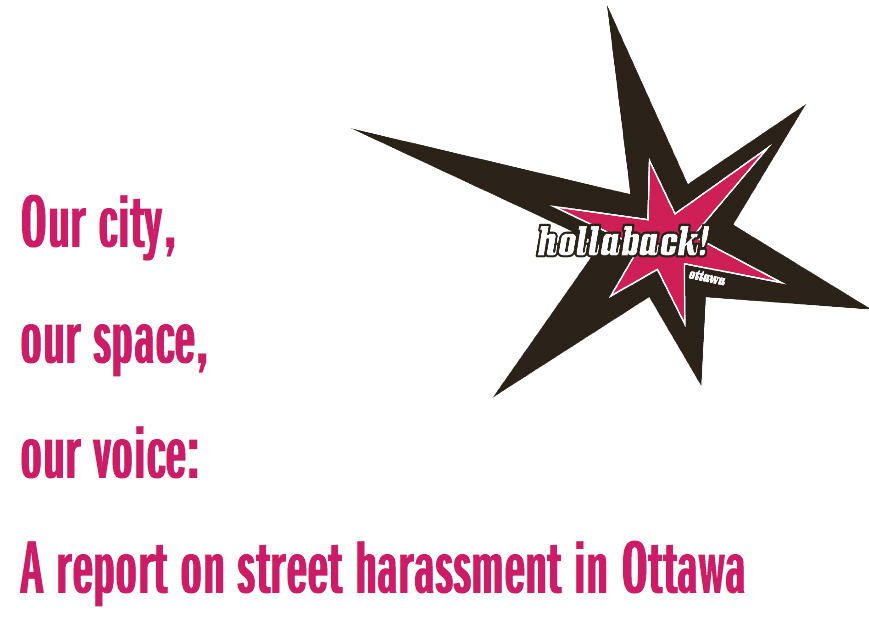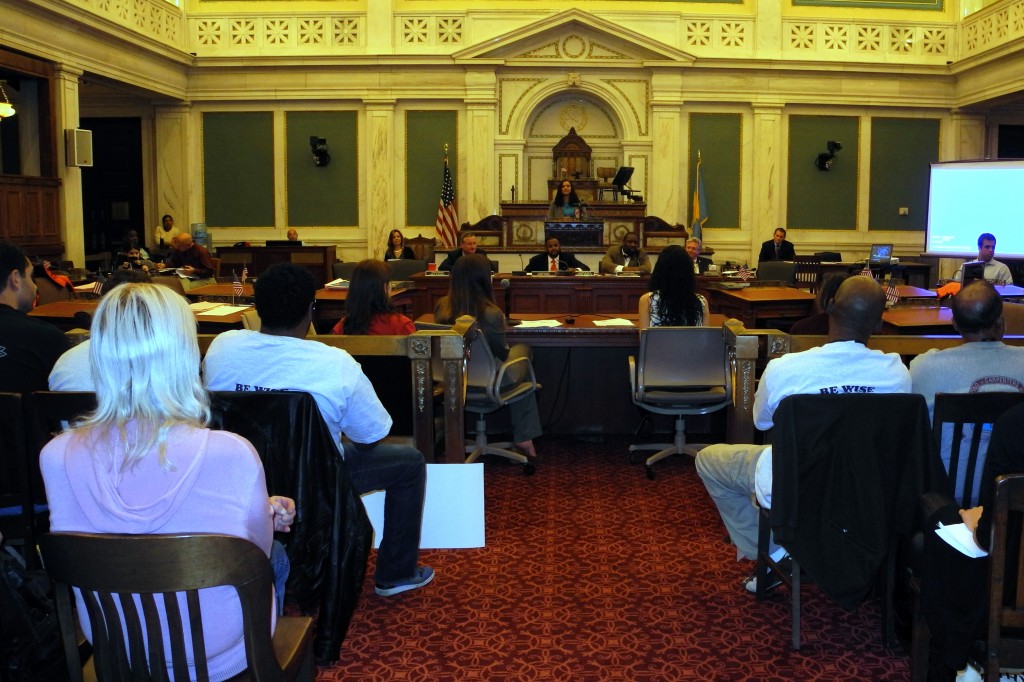
Today, the second-ever city council hearing on street harassment was held in Philadelphia! The first was held in 2010 in New York City.
This hearing came about because Council Member James Kenney read tweets by Hollaback! Philly about street harassment, researched the issue and he decided he wanted to address it. When he reached out to Hollaback! Philly over Twitter to ask what he could do, Hollaback! Philly’s director Rochelle Keyhan requested a city council hearing. While it took seven months to get it scheduled, today it happened.
During the morning hearing in Philadelphia’s City Hall, nine people testified (some represented organizations like FAAN Mail and Women Bike PHL, others were simply there as citizens), and Rochelle played a video of teenage girls sharing their stories, since they couldn’t attend due to school. Most people courageously and passionately shared their street harassment stories during their testimonies, Rochelle presented Hollaback! Philly’s new survey data, and I put the issue into a global context and explained why it’s a human rights violation. (Stay tuned, I will post everyone’s testimonies soon.)
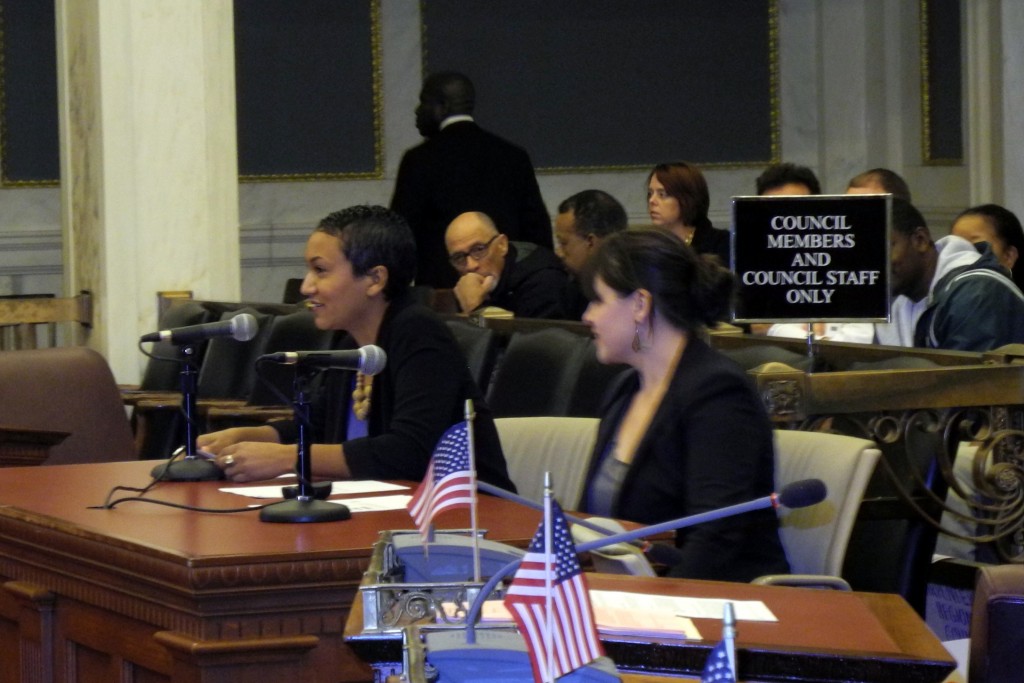
The main ask of the City Council is to help Hollaback! Philly organize community safety audits, a type of action created by METRAC, which the United Nations uses around the world and which activists in Washington, D.C. (co-led by SSH and Collective Action for Safe Spaces) and NYC (co-led by city council members and several activist groups) have already used. Hollaback! Philly needs help from the City Council in connecting with diverse community groups and churches in neighborhoods throughout the city to ensure that volunteers conducting the audit come from a range of backgrounds and perspectives.
The four male city council members who heard us were very sympathetic and strongly against the issue. This is HUGE progress. They were also interested in seeing the issue brought up to kids in schools and working with police officers to train them to know how to help with street harassment incidents.
After the hearing, Council Member Kenney met with us and assured us this was not a “one and done day,” but that he was committed to working with Hollaback! Philly and other groups to address the issue. Great!
Congrats to Hollaback! Philly, and in particular to Rochelle, for doing all the leg work and follow-up and organizing to make this happen and to make it successful!
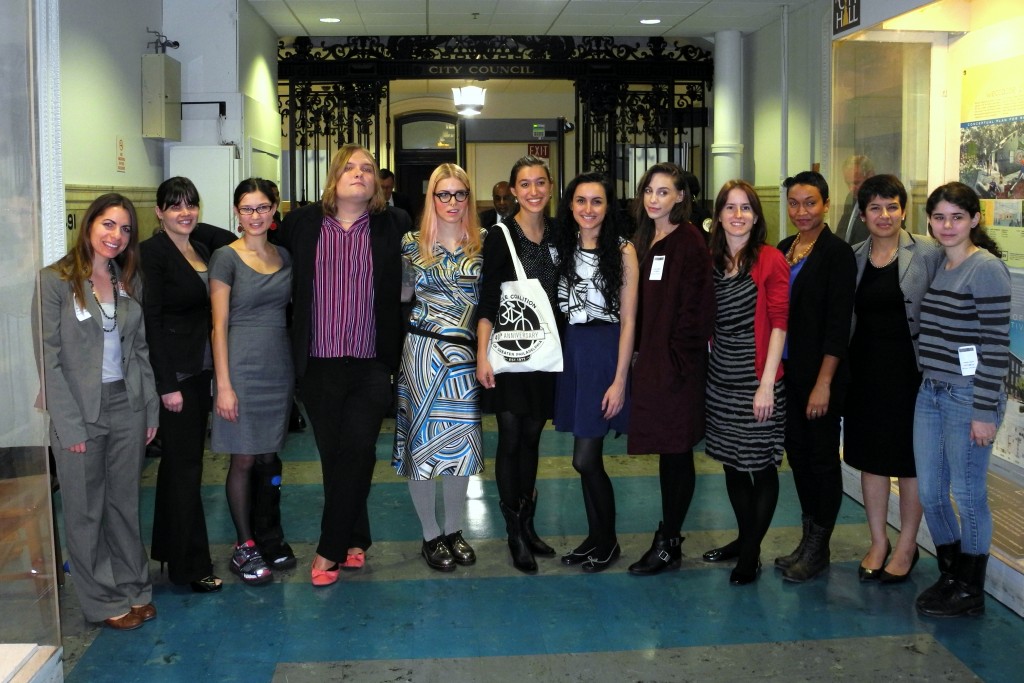

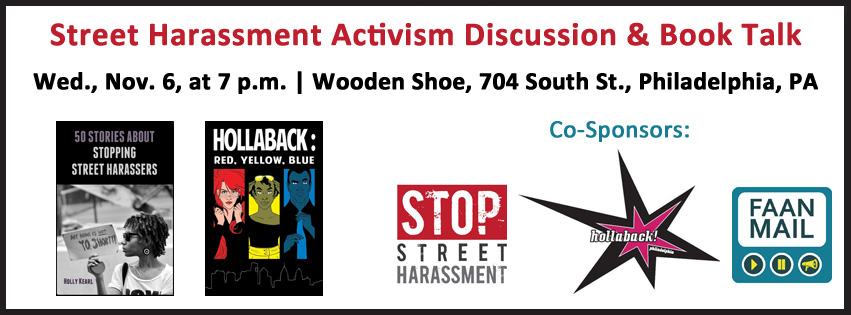
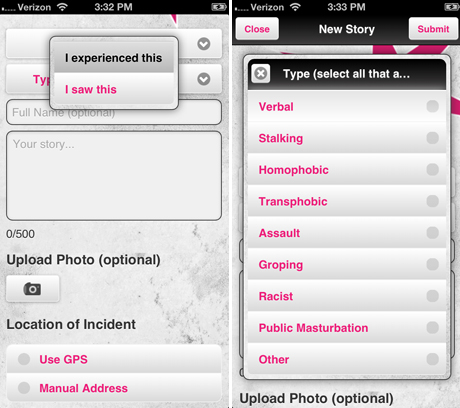 Building on a recommendation from the
Building on a recommendation from the 